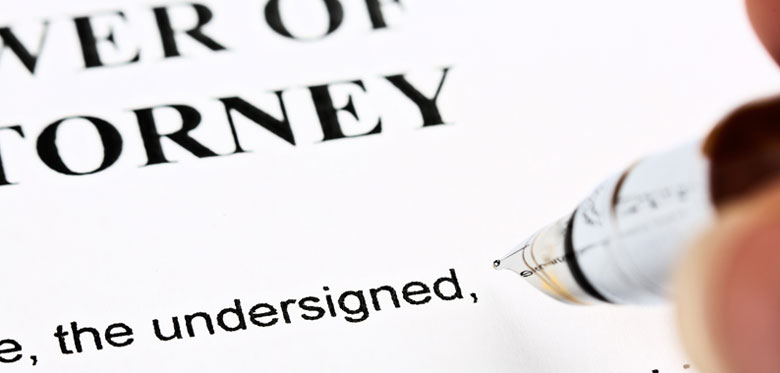Losing your mental capacity and your ability to make important decisions for yourself may not be pleasant to think about, but it is important that everyone plans for the unexpected and having a lasting power of attorney (LPA) is one of the ways you can protect yourself and your assets should anything happen to you.
Here we tackle some of the myths surrounding LPA’s which may prevent people from making them.
Myth: Only the elderly need an LPA
Everybody should have an LPA. While it may be true that elderly people have a greater risk of losing their mental capacity through illnesses such as dementia, younger people should not overlook the importance of LPA’s and the impact that not having one could have on themselves and their loved ones.
It is important that you put an LPA in place while you have full capacity to do so. If you were to sustain an injury or develop an illness that leaves you incapacitated and you do not have an LPA in place you run the risk of forcing your loved ones into potentially long and distressing court battles to take control of your finances and healthcare decisions. Unfortunately events that can affect mental capacity can happen at any stage of life and so it is something that you should think about putting in place regardless of your age.
Myth: If I make an LPA I will immediately lose the power to make decisions for myself
Making an LPA does not mean that you will lose the ability to make decisions for yourself as soon as it has been drawn up. Whilst you have mental capacity the document can only be used with your consent and when you no longer have capacity it can only be used when in your best interests to do so.
Myth: If I make an LPA my attorney will make all of my decisions for me if I lose mental capacity
Your attorney does not have to make all of your decisions for you unless this is what you specify that you would like them to do. When drawing up your LPA you should think carefully about which decisions you would like them to make on your behalf if you lose capacity.
A health and welfare LPA can allow your attorney to make decisions such as where you should live, what healthcare treatment you should receive and even what you should wear and eat. A property and finance LPA can allow them to make decisions regarding selling your property, dealing with benefits, bank accounts and investments, and allow them to pay your bills on your behalf.
You can specify in your LPA whether you would like your attorney to deal with all aspects of the above or only certain things.
Myth: I don’t need an LPA because my spouse will automatically be able to deal with my affairs if I lose mental capacity
Even if you and your spouse hold joint bank accounts they will not necessarily be automatically able to take control of your affairs if you lose capacity. In accordance with guidance from the British Bankers’ Association many banks freeze withdrawals from joint bank accounts if one of the account holders loses mental capacity. This is because the account holder without mental capacity is no longer able to agree to the terms of the agreement that both parties can withdraw from the account. Having a property and finance LPA in place would allow your spouse to continue using the joint account on behalf of both of you. If you do not have an LPA it could take several months for your spouse to regain access to the account after a lengthy legal process through the Court of Protection.
Myth: If I am unable to make a decision about my own healthcare the doctors will follow the wishes of my loved ones anyway
It is a common misconception that if you were unable to make decisions about your own health and welfare that your next of kin would automatically be able to make these decisions on your behalf, and therefore you do not need to appoint an attorney.
This is not true, your next of kin do not have an automatic right to act on your behalf. A lasting power of attorney is the only way you can say who you trust implicitly to make these decisions for you, including decisions regarding life sustaining care. If you were to lose capacity without having an LPA in place your loved ones would have to go through the courts to gain permission to make these decisions and this can be a long, complex and difficult process at what is already an upsetting time for them.
If you would like more information about how a lasting power of attorney would be beneficial to you and your loved ones call our experts on 0161 696 6238. Our lasting powers of attorney legal fees start from £500 and our solicitors are able to visit you at home or hospital if you require them to do so.



Comments